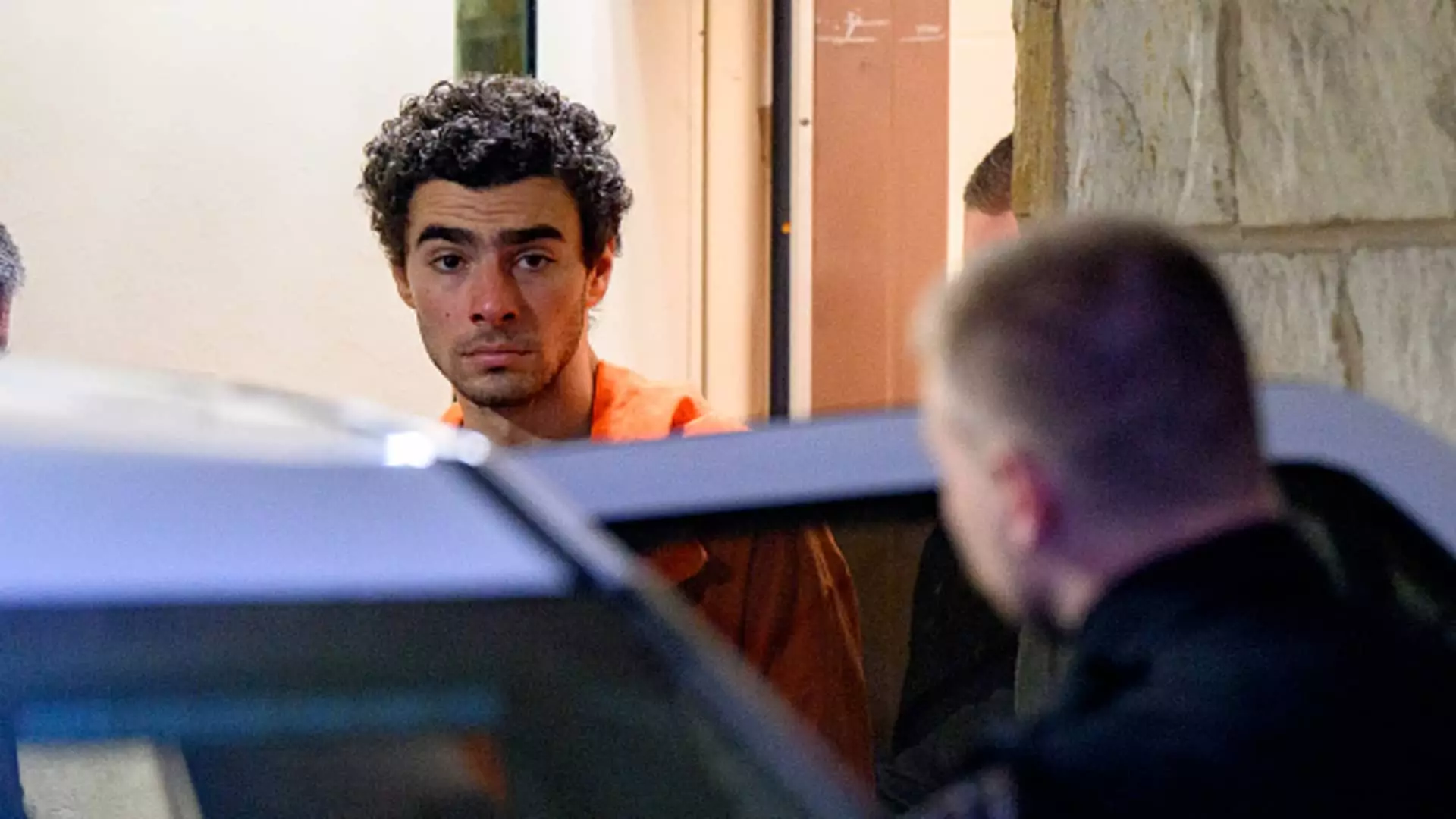In a shocking act of violence that has reverberated throughout the United States, federal prosecutors are contemplating charges against Luigi Mangione, the individual suspected of assassinating Brian Thompson, the CEO of United Healthcare. This case, which is still unfolding, raises significant questions regarding legal jurisdiction and the implications of murder charges in the context of terrorism. The murder, executed under a calculated ambush in Manhattan, has sparked widespread public outrage and scrutiny concerning the intersection of crime, healthcare, and law enforcement.
According to sources cited by NBC News, Mangione, 26, has been indicted on multiple charges, including first-degree murder and terrorism-related offenses. The horrific event occurred on December 4, as Thompson was walking along a New York City sidewalk, where he was ambushed from behind and shot multiple times with a silenced 9 mm handgun. The choice to target Thompson, a prominent figure leading the nation’s largest private health insurance company, suggests a motivation that transcends personal grievance and enters the realm of perceived ideologies surrounding healthcare in America. Authorities speculate that Mangione may have been driven by the sheer magnitude of United Healthcare’s influence, hinting at a possible ideological underpinning to this violent act.
Mangione’s legal troubles escalated with his indictment for first-degree murder in what has been described as a targeted assassination intended to instill fear within the healthcare community. In New York, the legal definition of first-degree murder involves specific aggravating factors that elevate the charge beyond standard homicide. This includes scenarios where the act is primarily motivated by terrorism. Depending on the outcomes of the forthcoming legal battles, Mangione faces the possibility of life imprisonment without parole, especially if the courts characterize the murder as an act of terrorism.
Compounding the legal complexities are the potential federal charges being evaluated. The federal government’s interest in pursuing additional charges could lead to a discussion of double jeopardy, the constitutional protection against being tried twice for the same offense. Karen Friedman Agnifilo, Mangione’s attorney, has expressed concerns regarding the legitimacy of federal involvement at this juncture, deeming it highly unusual and fraught with legal ramifications.
This incident doesn’t merely spotlight a brutal act of violence; it also highlights the tensions and divisions that characterize contemporary American society, particularly surrounding the healthcare industry. As leadership roles in healthcare significantly influence public wellbeing and policy, targeting a high-profile individual like Thompson raises dangerous questions about radicalization and the lengths to which individuals may go in expressing dissent against perceived injustices.
Moreover, the methodical nature of the murder; waiting near a hotel, donning a hooded jacket and mask, signals a premeditated act that invites further exploration of the psychological state of Mangione. What societal pressures could have driven a young man to become enmeshed in such a tragic and abhorrent scenario? Such questions propel us beyond judicial analysis into broader discussions about societal mental health, the ethos surrounding healthcare, and the extremities of activist maneuvers.
The unfolding Mangione case serves as a striking reminder of the interplay between crime, ideology, and the law. As federal prosecutors weigh their options, the implications of this case will reach far beyond a courtroom verdict. We observe a confluence of public health, legal battles, and deep-rooted societal issues that reveal the complex tapestry of contemporary America. As the proceedings continue, vigilance and scrutiny will undoubtedly accompany every development, shining a light on not only the legal aspects but also the societal ramifications that this tragic event has forcibly illuminated. The outcome will reverberate through legal systems and public consciousness, urging a collective reassessment of our values and the sanctity of life amidst rising tensions.

Leave a Reply